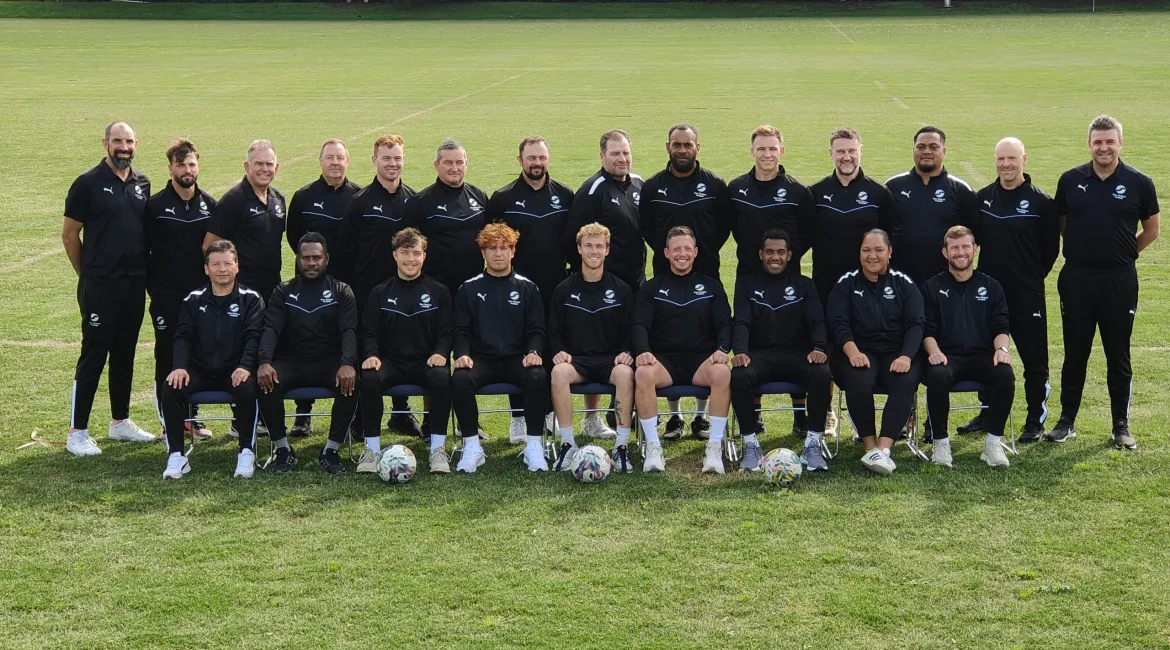Featured
OFC Goalkeeping Course Reaches New Heights with International Representation

AUCKLAND, New Zealand (AP) — In a landmark step for goalkeeper education in the Pacific, the Oceania Football Confederation (OFC) has wrapped up its second-ever Goalkeeping B Licence course, this time welcoming international participation for the first time.
Nineteen coaches took part in the five-day event held in Auckland, with five traveling from Fiji, Papua New Guinea, Tonga, and the Solomon Islands—highlighting OFC’s growing regional impact and commitment to raising coaching standards.
“Having passionate coaches from around the Pacific attend has been an incredibly positive step,” said Chris Marsh, OFC’s Education Consultant. “Last year’s course only included New Zealand-based coaches, so having international attendees now is a real milestone.”
To qualify for the course, coaches must already hold a Goalkeeping C Licence, a credential not commonly held in many island nations.
Focus on Realism and Innovation
The course combined theoretical instruction with hands-on training sessions, placing emphasis on realism and adaptability in modern goalkeeper development.
Key training themes included tactical match analysis, session planning, and psychological skills such as self-awareness and confidence-building. Coaches explored how to integrate outfield players into goalkeeper training to simulate in-game scenarios—an approach championed by OFC Goalkeeping Development Consultant James Bannatyne.
“For many coaches, involving outfielders was a new experience, but it made a huge difference,” Bannatyne said. “It’s vital for modern training. The progression during the week was remarkable.”
A session on self-awareness led by Dr. Campbell Thompson of Athletics New Zealand added an elite performance dimension. Coaches also benefitted from the expertise of guest mentors like Tony Franken (Head of Goalkeeping, Football Australia) and Jonathan Gould (Goalkeeper Coach, Auckland FC).
Empowerment Through Inclusion
Among the standout stories was that of Tangimausia Patolo, the course’s sole female participant, who traveled from Tonga.
“Being the only woman here was empowering,” said Patolo. “I was welcomed, respected, and hope my presence encourages more women to pursue coaching.”
Patolo emphasized the importance of decision-making, tactical awareness, and communication in elite goalkeeping. She also spotlighted psychological readiness as a critical factor in player performance.
Looking ahead, Patolo plans to focus on youth development and increasing female participation in Tonga’s football landscape.
Future-Forward: Digital Learning and the Road to 2026
With Part 2 of the course scheduled for November, participants will continue their education through distance learning modules, focusing on coaching philosophy, match-day management, and reflective analysis.
“The growth was huge,” said Bannatyne. “Coaches embraced the challenge. By the end of the week, their improvement was clearly visible.”
Marsh added, “We’re confident our programs are aligned with global standards and relevant to our region’s needs. The future for goalkeeper coaching in Oceania is very bright.”
In a long-term push to strengthen the pathway, OFC will offer another B Licence course in 2027 and plans to launch an elite OFC/NZF Goalkeeping A Licence in 2026—the final step in Oceania’s advanced goalkeeper coaching ladder.